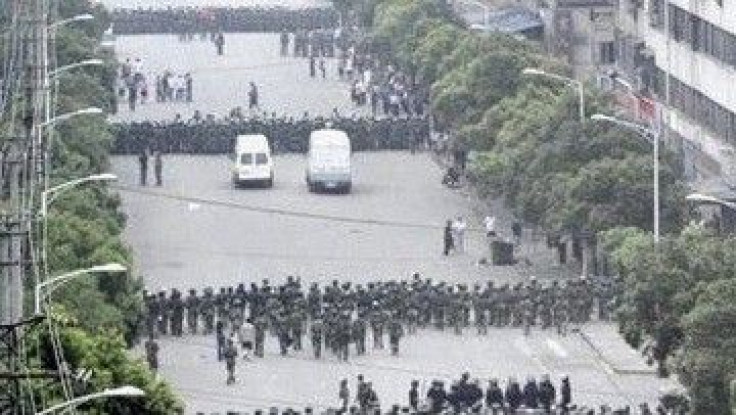Amnesty Blasts Beijing on Xinjiang Crackdowns

Amnesty International issued a statement Monday blasting Beijing for a protracted crackdown on ethnic unrest in Xinjiang, a region in China's far West.
Chinese authorities continue to silence those speaking out on abuses during and after the unrest, said one article on the Amnesty site, referring to unrest in the summers of 2008 and 2009.
Chinese Foreign Ministry Spokesperson Hong Lei said that despite Amnesty's pronouncements, China would not forestall its gestures to insure calm in the region.
In both the 2008 and 2009 uprisings, predominantly Muslim ethnic Uyghurs engaged in violent clashes with Han Chinese settlers, many of which were relocated to the region during economic measures in the 1990s designed to redistribute China's growing wealth to the relatively poor region.
In both attacks, Chinese soldiers were deployed to Xinjiang to halt the uprisings. Amnesty reports that subsequent to the 2009 attack, when the Internet was suspended in the region for several months after the close of the riots, Beijing cracked down on Uyghur dissidents.
Beijing officials blamed international Uyghur activists for provoking what they called 'separatist' attacks, although many analysts say that Uyghurs are upset by stark economic disparities between ethnic Han Chinese, China's majority demographic, and ethnic Uyghurs, some of whom are living in abject poverty in some southern cities in the region.
The Amnesty article on Xinjiang reported that hundreds of people were detained and prosecuted following the riots, with several dozen sentenced to death or executed and hundreds detained, with many of these sentenced to long prison terms.
Authorities haven't only targeted dissidents.
One Uyghur journalist mentioned in Amnesty's article, Hairat Niyaz, was sentenced to 15 years in jail after the 2009 riots for submitting articles and interviews to Hong Kong media, not governed by the Chinese Censorship Bureau.
Ironically, Niyaz was believed to be pro-Beijing.
After the 2009 riot, China doubled its security budget in the region, installing some 40,000 surveillance cameras to ensure a prompt crackdown on any unrest, according to an article from Voice of America.
© Copyright IBTimes 2024. All rights reserved.











